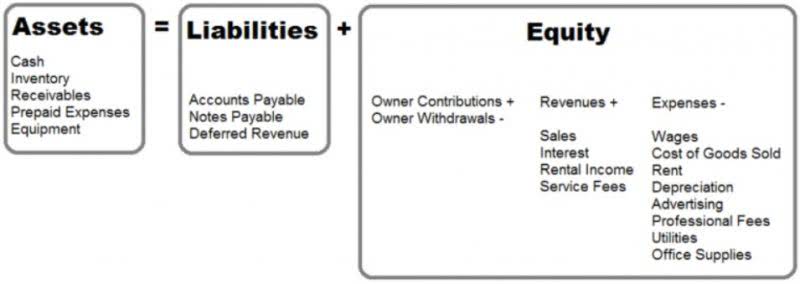First, establish good accounting hygiene when it comes to your rental property record-keeping, then use accounting software to help automate most of your finances. Next, your banking needs to be built out to optimize for the above real estate accounting best practices. Yes, several platforms offer powerful free bookkeeping software for landlords. These free tiers often include essential features like automated bank feeds, income and expense tracking, and basic financial reporting, providing a significant upgrade over manual spreadsheets. Unlike general tools like QuickBooks, landlord-specific software is pre-configured for real estate.
- They will help keep you organized, give strategic advice, and provide peace of mind knowing that your property’s finances are in good hands.
- Consistent tracking—backed by bank statements—clearly records your financial reports and taxes.
- Once we had several properties under our belts (and multiple other streams of income), we switched over to Quickbooks.
- This fee can be relatively high for landlords managing only a small number of properties, potentially making it less cost-effective for smaller portfolios.
- Additionally, they have a tenant portal to help with maintenance request tracking, as well as lease and document management.
- By implementing a robust organization system, you’ll gain a clear picture of your rental property’s financial health and free up more time to focus on maximizing your investment.
Key Features to Look for in Landlord Accounting Software
This property management software includes your own custom rentals website, a complete accounting system, tenant screening, free online rent payments, online file management, and more. Customizing your chart to reflect your types of transactions improves clarity when tracking your business finances. Most real estate bookkeeping software and accounting tools allow you to set up and edit a chart of accounts geared specifically toward property management. If you’d rather focus on growing your investment portfolio instead of handling day-to-day finances, hiring a property manager could be the smarter move. A professional property manager can handle rent collection, expense tracking, and tax reporting—often using high-end accounting software—so you don’t have to worry about financial management.
Why should landlords use a bookkeeping software program?
- Handling money for one property is hard; however, juggling numerous ones makes it worse.
- Customize your property management software or spreadsheet with categories like rent payments, utilities, repairs, management fees, and so on.
- A landlord accounting and bookkeeping software is the key to turning financial chaos into crystal clear profitability.
- Open a dedicated bank account for your rental business and use it exclusively for all property income and expenses.
- Whether it’s deciding when to increase rent, where to cut costs, or how to reinvest in your property, every choice you make based on accurate financial data contributes to better returns.
- It’s a decent option for smaller operations, but if you have a large portfolio or need advanced property management features, you might find its functionality somewhat limited.
Most landlords and agents use the cash basis accounting method, where income and expenses are recorded when money changes hands. At tax time, landlords need software that can generate Schedule E tax reports, profit and loss statements, and 1099 forms for contractors. Some tools even integrate with tax software or accountants for an easier filing process, while others can help you maximize your deductions to save you money. Accounting Errors There are several critical components to rental property accounting, and banking is certainly one. Here are a few quick tips to help you better conceptualize how your banking framework should be set up as you grow and scale your real estate investing business. Landlord Studio is a free property management and accounting software designed specifically for landlords.
Separate Your Business and Personal Finances
Like with other products, you should always evaluate the customer support options and user reviews of real estate accounting software. Accounting software either fully or semi-automates accounting for landlords these features and more, which altogether save property managers a significant amount of time, resources, and money. With a few simple systems in place, you can be sure you are accounting for all your income and expenses and can be confident in your financial analysis.

Stessa Pros and Cons
Accurate transaction records form the cornerstone of successful rental property management. Using dedicated rental property spreadsheet templates helps maintain organized financial records and simplifies tax preparation. Generally, you may deduct ordinary and necessary expenses related to your property, such as maintenance, https://www.bookstime.com/ taxes, mortgage interest, and insurance. For detailed guidelines, review the IRS tips on rental real estate income, deductions, and recordkeeping. Keeping detailed financial records, separating accounts, and promptly tracking all transactions are foundational practices for landlord success.
Best Accounting Software for Rental Properties 2025

Yet, many landlords still use outdated systems and irregular accounting practices. The most significant difference between general accounting software and landlord-focused platforms is a fundamental alignment with the real estate industry’s unique financial structure. Create a section to record monthly expenses with columns for the rental property. The user interface can be confusing to navigate, and the lease builder tool limits customization. Once you update a lease status to Ended, Past, or Future, it’s tricky to update leases as rental situations evolve. Payment processing can take several days, and it can be difficult to set up accounting features.
- Use either a reliable spreadsheet or dedicated accounting software for landlords to track rental income, including items like prepaid rent, and all related expenses each month.
- If you start using these technologies, you’ll probably cut down on paperwork, avoid losing important records, and find what you need way faster.
- An accounting system makes tracking property income like rental payments or security deposits easier, too.
- However, rental property accounting can often feel overwhelming, especially when balancing cash flow, tax obligations, and expense tracking.
- Evaluate properties with institutional-grade insights powered by Roofstock, and get notified in real-time when something meets your buy box.
- Choosing between the accrual or cash accounting method is also important for bookkeeping best practice.
This includes free rental property accounting software that offers a Cloud-based “smart bookkeeping solution” for landlords. The product vision is to make managing the financial aspect of a portfolio of rental properties painless and automatic. Missing even one payment entry can distort your financial reports and make tax filing stressful.Create a habit of logging rent payments immediately.
Automatic late fees and reminders help reduce missed payments and time chasing rent. Clean exports make tax prep faster when it’s time to hand data to a CPA or plug into tax software. Baselane’s online rent collection software automates rent payments that are deposited directly into your account within 2-5 business days. Save even more time with automated reminders and late fees, plus real-time property management payment notifications to easily track payment history. Stessa is ideal for self-managing landlords who might use (or consider using) a bookkeeping software product such as Quickbooks. However, Quickbooks can be complicated to set up for real estate uses from scratch, and is not expressly intended for rental property businesses.
Standout features

Minimize vacancies, reduce turnover costs, and maximize your investment’s potential by mastering the skills to find and keep exceptional tenants. By removing manual data entry needs, and adding automation to the process Landlord Studio saves real estate professionals hours every month and can save you as much as $500 per property per year. Supporting documents provide evidence in the event of a tax audit by the IRS that the expenses you claimed for your business are valid.
